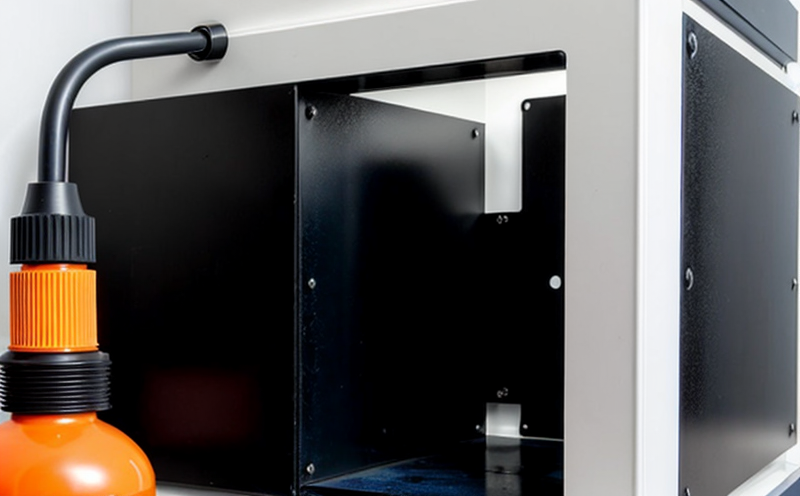Nanocoatings & Surface Treatments Testing
In today’s competitive landscape, nanocoatings and surface treatments represent a pivotal advancement in materials science. These technologies are designed to enhance the properties of surfaces by depositing or applying layers at the nanoscale level. This microscopic approach allows for significant improvements in performance metrics such as durability, adhesion strength, scratch resistance, and chemical stability.
The testing of these nanocoatings is critical to ensure that they meet stringent quality standards set by both industry and regulatory bodies. Our laboratory offers comprehensive testing services tailored to the unique requirements of nanocoating applications across various sectors including automotive, aerospace, electronics, and construction. By leveraging advanced analytical tools like scanning electron microscopy (SEM) and atomic force microscopy (AFM), we can provide detailed insights into the structural integrity and performance of these coatings.
The significance of nanocoatings extends beyond mere enhancement; they play a crucial role in reducing environmental impact through reduced material usage, increased efficiency, and longer product lifespans. For instance, nano-coated surfaces can lead to energy savings by improving heat insulation or reducing friction, which is particularly beneficial for high-performance applications like engines and turbines.
Our testing approach ensures that nanocoatings meet the rigorous demands of international standards such as ISO 16232:2019 and ASTM D7854-20. We employ cutting-edge equipment to measure properties including thickness, roughness, adhesion strength, and chemical composition. Our methodologies are designed to provide accurate assessments that can be used for quality control, development of new products, or compliance with safety regulations.
In summary, the testing of nanocoatings is not just an academic exercise but a practical necessity in ensuring product reliability and performance. By offering precise and reliable tests, we help our clients to innovate safely and effectively within their respective industries.
Why It Matters
The importance of nanocoatings cannot be overstated, especially in sectors where surface properties significantly influence product performance. For instance, in the automotive industry, nanocoatings can enhance fuel efficiency by reducing drag or improving corrosion resistance to extend vehicle lifespan. In electronics, they provide better protection against environmental factors like humidity and dust, ensuring longevity and reliability.
From a safety standpoint, nanocoatings contribute to enhanced durability in construction materials, which is crucial for infrastructure that must withstand harsh conditions over extended periods. Additionally, these coatings can play a vital role in medical devices by offering biocompatibility or antimicrobial properties, thereby improving patient outcomes.
The economic implications of effective nanocoating testing are profound. By ensuring compliance with international standards and optimizing performance through rigorous evaluation, companies can reduce costs associated with rework, improve market competitiveness, and foster innovation. This aligns perfectly with the goal of sustainable development by promoting resource efficiency and minimizing environmental impact.
In conclusion, the careful examination of nanocoatings is essential for maintaining high-quality standards across diverse applications. It ensures that these advanced materials meet not only technical specifications but also broader objectives like sustainability and safety.
Scope and Methodology
| Test Parameter | Description |
|---|---|
| Nanocoating Thickness | Determined using X-ray fluorescence (XRF) analysis to ensure consistent layer deposition. |
| Surface Roughness | Assessed via atomic force microscopy (AFM) for deviations in nanoscale roughness measurements. |
| Adhesion Strength | Evaluated through pull-off tests to assess bond strength between the coating and substrate. |
| Chemical Composition | Analyzed using Fourier transform infrared spectroscopy (FTIR) for precise chemical profiling. |
Benefits
- Comprehensive evaluation of nanocoating properties to ensure adherence to international standards.
- Identification and rectification of potential issues early in the development process, reducing time-to-market delays.
- Achievement of regulatory compliance, thereby facilitating smoother market entry for new products.
- Enhanced product performance leading to improved customer satisfaction and loyalty.
- Optimization of material usage through precise coating application techniques resulting in cost savings.
- Support for continuous improvement initiatives by providing data-driven insights into the effectiveness of nanocoatings.





